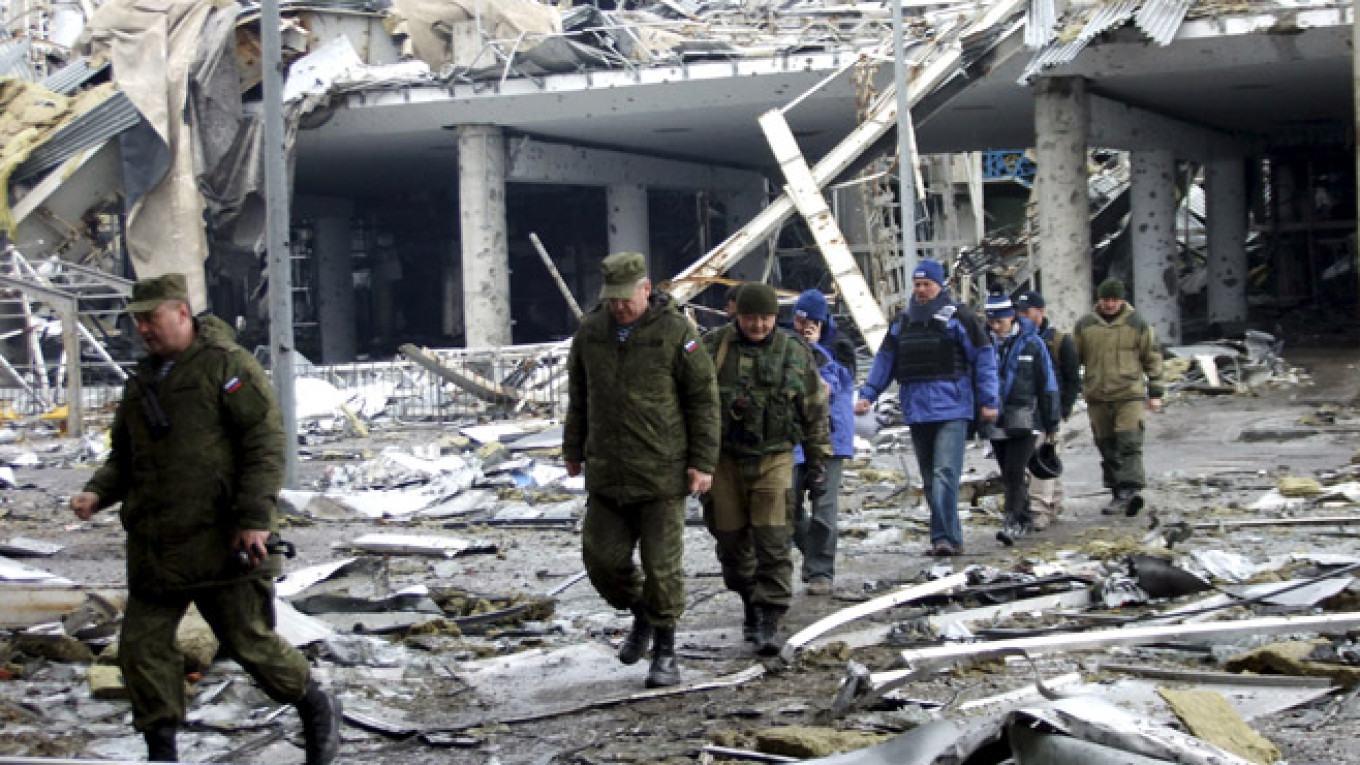Belarussian President Alexander Lukashenko told Bloomberg recently that without high-profile American involvement there could be no stability in Ukraine. He has a point.
In the crisis, with its huge repercussions for European security, the American role has been inconspicuous. Despite Moscow's assertions that Russia is fighting a war with the United States in Ukraine, U.S. President Barack Obama's administration has largely dodged the fight.
Washington gave spine to the Western unity on sanctions on Russia and the IMF bailout program for Ukraine. Debate on supplying arms to Ukraine in the United States may have pushed both Russia and Europe into a cease-fire deal in Minsk. But otherwise, Washington has retired to the backstage, while Obama largely ignores President Vladimir Putin (their last phone chat was two months ago).
Yet, Putin has been trying to get Obama's attention, telegraphing his eagerness for engagement on Russia's concerns over the fundamentals of the world order.
While Putin's antique visions of spheres of influence, buffer zones and limited sovereignty of small states cannot be entertained by Obama, engaging him personally to achieve a lasting settlement in Ukraine would be a sign of American leadership.
Andrew Weiss of the Carnegie Endowment in Washington argues that it is a mistake for Obama not to engage Putin directly on Ukraine, downgrading the role of the U.S. in resolving a major security crisis in Europe.
A recent report by the International Crisis Group calls for "quiet, high-level and continuous engagement with Putin himself" on Ukraine through a "special envoy at the level of former head of state or foreign minister," because "decision-making in Moscow is concentrated in the presidency and requires a direct channel."
Direct U.S. involvement may now be necessary because the Minsk II process has reached a precarious point. There is still a chance to avoid a permanent frozen conflict in the Donbass.? But this would require Putin to accept Ukrainian President Petro Poroshenko's vision of the political aspects of Minsk II in exchange for a comprehensive Russian-Ukrainian settlement on Crimea. And it would take U.S. assurances on Ukraine's non-membership in NATO.
Obama's personal engagement with Putin may or may not succeed. Their relationship is poisonous and Putin, after all, may not be interested in the final settlement in Ukraine. But it is still worth trying, if only to deny Putin the benefit of the doubt.
Vladimir Frolov is president of LEFF Group, a government relations and PR company.
A Message from The Moscow Times:
Dear readers,
We are facing unprecedented challenges. Russia's Prosecutor General's Office has designated The Moscow Times as an "undesirable" organization, criminalizing our work and putting our staff at risk of prosecution. This follows our earlier unjust labeling as a "foreign agent."
These actions are direct attempts to silence independent journalism in Russia. The authorities claim our work "discredits the decisions of the Russian leadership." We see things differently: we strive to provide accurate, unbiased reporting on Russia.
We, the journalists of The Moscow Times, refuse to be silenced. But to continue our work, we need your help.
Your support, no matter how small, makes a world of difference. If you can, please support us monthly starting from just $2. It's quick to set up, and every contribution makes a significant impact.
By supporting The Moscow Times, you're defending open, independent journalism in the face of repression. Thank you for standing with us.
Remind me later.


